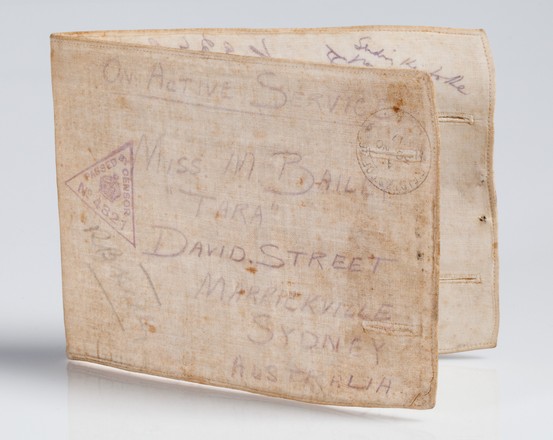
'Dear May … from Rob'
sent ‘On Active Service’ from Palestine, 25 November 1917
Irish linen white shirt cuff with buttonholes at each edge
Bequest of Sir William Dixson, 1952
DR 89
Irish linen white shirt cuff with buttonholes at each edge
Bequest of Sir William Dixson, 1952
DR 89
At the time Rob posted this letter, Australian troops were deployed in the Middle East as part of a larger British campaign, which included the defence of the Suez Canal and occupation of the Sinai Peninsula. Following the Battle of Beersheba on 31 October 1917, famous for the mounted charge by the Australian 4th Light Horse Brigade, British forces stormed through Turkish defences to seize the strategic town of Beersheba and advance into Palestine.
Rob may have found this shirt cuff when he travelled through the cleared lines after the Beersheba battle. Rob had clearly made it into Palestine by 25 November, and had come upon a stash of German belongings which had been abandoned as the Germans and Turks retreated. Made of fine Irish linen with buttonholes for cufflinks visible on each side, the cuff would have been owned by an officer. It still remains crisp with starch.


 Back to list
Back to list